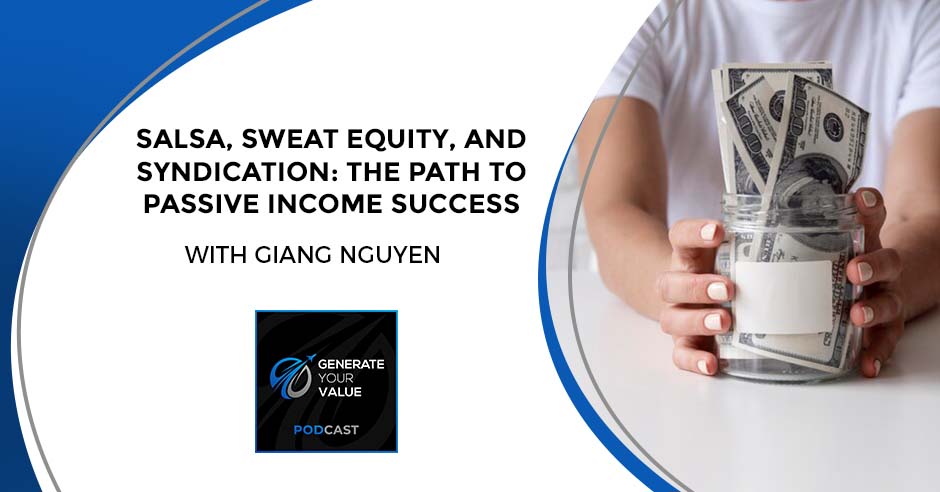Transform your fears into stepping stones, seize every challenge as an opportunity, and always keep in mind: Assets provide freedom, liabilities restrict it. In this episode, we have Giang Nguyen, a former medical researcher turned passionate real estate investor and salsa enthusiast. Today, she shares how to build generational wealth using real estate. Discover the power of wealth-building wisdom, navigating fear, leveraging passive income, and more. Tune in now!
—
Listen to the podcast here
Salsa, Sweat Equity, And Syndication: The Path To Passive Income Success With Giang Nguyen
We got a great show for you with a guest. It’s an awesome story. I can’t wait for her to tell you her life story, where she’s gone, and how she’s maximized the time. We only have a certain amount of time on this planet I call Earth school and it’s all about going after the life that you want for yourself and creating the life you want for yourself. After the episode, you’ll be shaking your head going, “I get why Andy’s here every single week talking about this stuff because our guest has really maximized the efforts for the time that she’s been on planet Earth.” My guest is Giang Nguyen who comes to us from the great city of brotherly love, Philadelphia Pennsylvania, home of the Eagles, Phillies, Flyers, and 76ers. It had a storied life on the sports scene. I lived outside Philly for a few years during my childhood in elementary school and certainly was a Flyers and Phillies fan at that time. I moved to Northern New Jersey and then I changed to the enemy.
What a story, Andy. How dare you.
I became a Giants fan and all that stuff. Let me read Giang’s bio and then we’ll bring her informally and have a nice conversation about her life story and so forth. Giang Nguyen is a seasoned multifamily real estate investor and syndicator specializing in value-added multifamily rentals. With several years of experience as a scientist, Giang excels in analyzing complex data employing financial models, and creating problem-solving. She applies the data-driven approach to help our teams identify key markets, underwrite multifamily syndication opportunities, and create business plans that maximize property value.
Giang achieved financial freedom through real estate investing at the age of 31, paving the way for her to pursue her passions. Driven by her desire to educate others and help them achieve financial freedom, Giang founded One River Capital, which we’ll get into. Through the company, she provides people with real estate investment opportunities while also educating them on passive investment investing.
Being an immigrant herself, Giang understands the challenge of building wealth in a new country. She’s committed to supporting others in achieving their American Dream through real estate investing and investment. Giang, welcome to the show. I know that’s not all of your life story. The biggest part that I think is missing is the beginning and being a scientist. I always like to give our guests an opportunity at the very beginning to fill in the holes, pick a point in your timeline that you want to start out and give our audience an idea of your journey and experience so far through life.
I love it. Thanks so much, Andy, for having me. I’m really excited to be here. What Andy was saying about you having limited time on this Earth school, I’m excited to share about why I’m here and what I’m doing on this Earth school. I grew up in Vietnam. I grew up there in Ho Chi Minh City. If you haven’t been to Vietnam, Ho Chi Minh City is hot, crowded, and humid, but it’s like the New York version in the US as there are things happening always and lots of things to do.
Lots of honking cars.
Lots of honking motorbikes, actually. I grew up there and then I came to the US for college. I move from hot and humid Ho Chi Minh City to Maine. That was my intro to the US. I went to a liberal arts college in Maine called Bates College and I majored in Biology. I wanted to become a vet. I was majoring in Biology then I wanted to go to pre-med and do medical school. Right after college, I started working as a scientist doing gene therapy for the blood disorder hemophilia A, so I worked at the Children’s Hospital of Philadelphia for ten years and left that W-2 last August 2022.
I’m in my first few years of full-time entrepreneurship and I reached that financial freedom through real estate investing, specifically multifamily investing. What I do now is help other people invest passively in real estate. I am also a competitive salsa dancer. What you are talking about in maximizing your time here on Earth is more about work. This is about your passion about what really fires you up every day when you wake up. That’s what I’m in pursuit of. I’m asking myself, “What is it that I’m doing? What fires me up? What am I here for?”
There is so much to unpack there. Vietnam to Maine, what was that culture shock like?
It was quite a bit. One part that I left out was I actually went to a boarding school as an exchange student in high school in New Jersey. That was my first cultural shock.
Growing up in New Jersey, I can understand that.
I loved the boarding school so much. Everyone was so smart and hard-working. That was where I saw my first snow. One of my fun experiences was when I was in my class and my teacher knew that I hadn’t ever seen snow before. We had the first snow this season and she asked if people would like to switch so that I could sit on the other side of the room and be able to look at the window and see snow falling. I was like, “Go ahead.” I haven’t seen snow all my life and I’m just mesmerized by the snow.
For the first few months, my roommate was saying that she could not understand what I was saying whatsoever. I was completely learning everything in Vietnamese to now learning everything in English. That year, I grew so much. What I got to know about myself was that I love learning. I love this knowledge. I love what’s out there and what people have come up with. That fired me up to come back to the US for college and ended up staying. It’s certainly a big cultural shock. Now, I couldn’t imagine not taking that exchange year.
Where in New Jersey was the boarding school?
The school is called Peddie School. It’s in Hightstown, New Jersey, about 40 minutes from the Six Flags in Jersey.
I was further North. I was closer to Newark. I can appreciate the snow piece. I was born in Florida. My dad got promoted. We moved up to Southwest Connecticut. The first time I saw snow was sitting at the kitchen table in the kitchen. Little snow flurries started coming down outside. I looked outside and saw the snow flurries. My mom is in the kitchen. I said, “Mom, this sky’s got dandruff.” I know what a dandruff was. I didn’t have a flipping clue about what snow was. Nobody had ever talked to me about it. That was all brand new to me at the age of 5 or 6 years old.
That’s so cool. I then went to college in Maine, so then we had a lot of snow. I went to a liberal arts school, so we have a small campus. Every time it snows, I am always amazed at how beautiful and quiet the campus gets for a couple of days before things get dirty and we experience the other side of snow. I love that we have that first experience with snow when we were younger.
What happened in the desire to be a vet but ended up being a medical researcher? What stopped the dream?
I found out that I’ve always liked science. I like the knowledge. I like how cool, to be honest, things are. There’s so much knowledge and things that people have been able to research and find out about how the world functions. I always love animals growing up. I was like, “I want to become a wildlife vet.” Actually, I wanted to become that. What stopped that dream was that I learned that there’s only a limited amount of spots for a wildlife vet in the US. At some point, there are only so many zoos out there unless you want to travel outside the US and become a wildlife vet.
Otherwise, it’s a very limited amount of spots. It’s not a lot of turnover. The job perspective was very hard to become a wildlife vet. I knew I liked science. After that, I started doing research. I like finding things out and learning things, so research was a perfect fit. I had an amazing working environment when I left college, so I ended up staying there for ten years. Because I was working in a hospital setting and working with a lot of doctors, that’s how I got to know more about what it’s like to become a doctor, and wanted to do that for a while. What got me to pivot was quite interesting. Sometimes, when we grow up, a lot of people get asked, “What do you want to do when you grow up?”
The piece of the question that I feel like not a lot of people ask themselves is, “What am I willing to give up in order to get there?” I love the knowledge, but what I wasn’t quite prepared for was like, “In order to become a doctor, that is about 10 years, which is 4 years of medical school, 3 years of residency, and maybe 3 years of fellowship.” That was about ten years of commitment. At that point, my parents were living back home. I didn’t want to admit it, but they were getting older than what I was prepared for. My dad got sick and that was one of those wake-up calls where I realized like, “I’m going to be on this path of ten years of pursuing this. What I’m really going to miss out on is all this time that I get to spend with my parents that I won’t be able to get back.”
Salsa, Sweat Equity, And Syndication: The Path To Passive Income Success With Giang Nguyen Share on XIt’s not one of those things that my parents are going to be around and healthy forever. I will just do this maybe twenty years from now. At that point, it was a wake-up call of me choosing like, “What do I want to do more? Do I want to spend ten years or do I want to be able to spend that next ten years with my parents?” I chose the latter. That was one of the key reasons that pushed me to grow in real estate. What I realized was I love my job and I had great job stability, but what it came down to was I didn’t quite have the flexibility.
When my dad was sick, I couldn’t fly back home and be with my parents for the weeks that I really wanted to be. I knew that as long as my income depended on a job, I would not have the freedom and flexibility that most of us prayed for. That helped me to grow my real estate portfolio. That was how I was able to reach my financial independence through real estate investing and quit my W-2. This interview is timely because I’m off for a month traveling with my parents. That has always been that goal and dream that I’m getting there.
I am flying out to travel with my parents. In Vietnamese culture, the Lunar New Year is huge for us to celebrate. We haven’t actually celebrated the Lunar New Year together back home since I was in sixth grade, like all with me, my parents, and my sister. This time, we are getting that. My whole family, parents, sister, and I are going back home and celebrate the Lunar New Year. It’s one of those I’m really excited about the trip. I wouldn’t have been able to do this without having that passive income through real estate.
I haven’t been to Vietnam, but I spent a lot of time in China in my Boeing days. Come around the beginning of February, we could never get anything done with our client our clients because it’s like August is in Europe. Everybody disappears and goes home for the holidays and the holiday lasts 3, 4, or 5 weeks. It’s not like the week between Christmas and New Year kind of thing. It’s a long time. We always had to build that into our project plans knowing that in the month of February, nothing’s going to get done with the client. We could get stuff done that was in our control and keep the project moving, but in terms of interaction with a client, forget about it because everybody’s gone.
Everybody’s gone. That’s the time that you spend with your family. That’s the true New Year back home for us.
In your research days, you actually achieved some things.
I worked for ten years. What I loved about it was it was truly academic research. We got to ask the questions not for the purpose of business per se but for the two purposes of the pursuit of knowledge where we get you ask how things work and then what we found out could potentially translate to therapy. It was cool that I got to follow a project from when it was just an idea that I had that we could engineer a protein. We ask a question. We do a lot of research. We find out the answers and then be able to have a patent on that engineering product. That was one of the highlights of my career. We were publishing papers on it. I get to present my research at different conferences. Like I said, I really love my work environment. I love the people I work with, which was helpful in why I stayed there for ten years.
I can relate to that. I’m a co-author on two patents back in my Boeing days. It’s fun to do that research and find ideas that are unique in nature. An interesting thing is everybody knows and realizes from a patent perspective and I always say it’s like the game of football. You have offense and defense. A lot of times, patents are used on the defense side. We have an idea and we’re going to protect it because we want all the revenue based on the ideas as long as we have that patent protection. In the case of the two patents I was involved in, we did it on the offense side because of what a competitor did. The competitor took a similar idea.
It was distinct enough that we could still get our patents, but they tried to lock the industry out of it and it caused a lot of havoc in the industry. We weren’t able to participate in it. We took the slant of we’re going to patent it and not go after any enforcement behind it because we want to make sure everybody can participate in it. We want to move the industry forward. We want to make sure that nobody gets in the way of doing it like it happened before. We went after the patent, but we had no intentions whatsoever to enforce it. We were trying to create a playing field where everybody could use it and make sure nobody tried to do it from a defense perspective like I’ve done before. It’s a little idea out there for people that patents can be used in both an offensive and defensive way. It depends on what you’re trying to achieve with the idea.
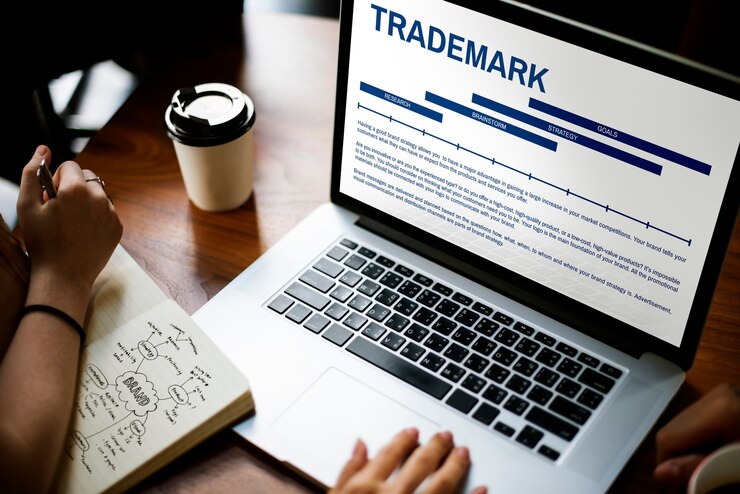
That’s cool that you shared that.
I got a lot of nastygrams for the patent that first came out because everybody thought that we as Boeing were going to go on the defensive side with it. They’re saying some nasty stuff about Boeing, myself, and my colleague who co-authored it with me. We had to straighten some people out to say we’re not looking to enforce it. We’re doing this to make sure that you can participate in it and not have somebody else go and lock you out of it and make you pay money for the use of it like how it was done over here.
It then was like, “Oh.” We never got apologies out of it, but it is what it is. I wanted people to understand that because the magnitude of your story is from the standpoint of change of countries, going away from your family, change of cultures, change of dreams, and then it changed to entrepreneurship, the realization of freedom. What you were really looking for was freedom for you to create the life that you want for yourself as opposed to working in the corporate world. It’s not a bad thing, but like you said, you lose some freedom of time for the ability to have that stability or perceived stability in working for a corporation in exchange for that paycheck. There is some risk involved in it, but it could be profound to the freedom that it brings. I understand that now being an entrepreneur myself as opposed to being 22 years in the corporate world.
I fully agree. Like you said, being in corporate is not bad at all. A lot of people love their work and they love what they do. What we all just advocate for is not that everyone switches to entrepreneurship because I’m not going to say it’s all rosy. We all have our challenges.
It’s not rosy.
What I think we all advocate for is the options, freedom, and that choice that people get to make. If that is to stand your corporate work, great. Make that choice. If that choice fires you up every day, do that. Ultimately, where we are getting to is a lot of people who are in the corporate have this term called the golden handcuff. There’s always incentive, which is great, but it keeps you at a job that may not make you happy and it’ll make you fire up every day.
What we are all here to share is that people have the choice of what it looks like. It’s a concept that is more so popular now with different generations. Let me tell you. When I left my W-2, one of the conversations I had was with my parents. They were both teachers. They taught all the way until their retirement. The idea of me leaving a W-2 when I had such great stability where I loved the people I worked with was insane for them.

I totally relate to that because I had the same issue with my family.
That perceived stability in a W-2 is why I think a lot of people stay. It’s right. What we all just advocate for is that people just need freedom. In order to get that freedom, they do need second revenue, passive income, or whatever that is that is independent of their W-2, so that if one day they wake up and like, “I want to switch to a part-time job. Not quit entirely,” they have other revenue, passive income, or something else that can support them why they find out what it is that they want. We’re all here supporting that choice that people get to make.
It’s not only the paycheck. It’s also the benefits. With a paycheck, they can take it or leave it, but having access to cheap healthcare and the benefits side is what keeps them in much more than the idea of a paycheck.
I struggled with that question for a while as well. I work at a hospital. I had amazing health insurance. We have retirement and all that jazz. I would argue that the question of benefits ultimately comes down to the question of finance. The point of benefit is that it helps offset some of these financial costs if and when you need to go to a hospital. Ultimately, it comes down to that. It comes down to the finance piece where if you have the financial support, then you can technically get your health care through the marketplace. It’s going to be more expensive, but it all comes down to that financial piece of at what point the benefits don’t matter to you anymore.
You’re sitting in a hospital doing research in Philadelphia. You decide with the events of your father’s illness that you want to do something that’s got you more freedom. Why real estate?
I went to a liberal arts school, so I knew nothing about real estate. I was renting at the time. Becoming a real estate investor was not at all on my life’s Bingo list no matter how you were talking about it. What happened was at that point, I was renting. There was a foreclosure home that came up on the market just four blocks from where I was living at that time. At that point, I didn’t know anything about real estate. I didn’t know mortgages existed.
This is the cultural difference. Right back home, we don’t really have a mortgage. We don’t have this financial support in order to purchase anything. I didn’t even know mortgages existed, but at that point, my sister was already a real estate agent. She said, “Buy this place. I’ll help you with it.” In that place, there was a lot of sweat equity into rehabbing the place. The place we bought was taken for many years. We have no electricity, no water, and no HVAC. There was actually a giant tree that was growing in the backyard that was growing into the foundation wall.
The cool thing was, at that point, because I didn’t know anything, I didn’t know enough to be scared of anything. I’m like, “This is what people deal with.” I didn’t know it was possible to even buy and flip a nice place where you don’t have to do this. It’s like, “This is how things work.” I bought that place. I did lots of googling and learning along the way. There is a lot of physical sweat equity into turning this place around. Through that, what I got to learn about myself is that I’m good at troubleshooting, I’m good at problem-solving, and things just work out.
In a way, I feel like I didn’t have any analysis paralysis because there was nothing to analyze. I just go for it and take action. We got that place. That was a place where we did the BRRRR strategy to Buy, Rehab, Rent, Refinance, and then Repeat from that place, which was just a single-family. After that place, I actually got to learn a bit more about real estate. I got to read Rich Dad Poor Dad, Cashflow Quadrant, and a lot of these books that really helped teach me this concept of financial freedom. As an immigrant, as someone who came over for college, the American Dream has always been to get a good college degree, and get a good job, and life seems to end after you get a good job.
There was a nice home, a white picket fence, a family, and two dogs. That’s the American Dream.
There was something where I was like, “I didn’t know that financial freedom was possible. I didn’t know passive income was possible. I didn’t know anything besides trading my time for money.” After that, I really learned like, “Passive income is the key to being able to get your time back and what it looks like you were able to get your time back.” That set me on the path of building passive income so that it can help replace my active income. That was one of those take action first, ask questions later, and figure things out along the way until things work out.
Passive income is the key to really being able to get your time back. Share on XLet’s talk a little bit about this notion of generational wealth because. I don’t think it’s well understood or at least parts of pieces of it are not well understood. I did an episode last season with a gentleman who was in selling and buying businesses. There’s a good understanding of the word asset. When it comes to generational wealth, the parts and pieces that bring you the most potential when it comes to generational wealth are assets because they’re tangible. There are some intangible ones that can help you, but for the most part, it’s tangible. That’s why real estate is a great mechanism for this. It’s a way for you to create passive income.
By passive, we mean you’re not having this sit there every single minute of the day working on the business. By nature, you spend some time. You set yourself up with assets or something that can make money while you are not even spending one second of your day on it. It’s by nature that it’s there. You’ve created a business model that works. You’re creating income even though you’re not directly focused on it every single minute of the day like you are when you do a W-2 and go work for a corporation, sitting at your desk, and focused on your job, that exchange of time for money. That’s what I mean by passive income. Assets are the best way to create generational wealth for yourself and do it in a passive income way.
Assets are the best way to create generational wealth for yourself and do it in a passive income way. Share on X
I want to talk to you a little bit about the word fear in a minute. The fear that people have is the word debt. People hear the word debt and red flags go up, “I don’t want to take on too much debt.” It’s because they’re used to the mortgage payment. They’re used to the car payment. The mortgage payment is buying into an asset, but it’s the asset that you’re living into, so it’s not passive income. That’s just an expense that you’re slowly building the equity to the home that you’re living in.
It doesn’t really qualify for passive income because the asset is not being used to make revenue or money. You can’t use the word income in that sentence. Not all debt is the same. It appears to be debt. It’s still debt on the books, but if you’re using that asset as a mechanism now to bring in income and that income is greater than what you have to pay out as a debt, then you’re actually making money. It’s going to help you to build wealth in your portfolio.
One key thing about financial literacy that I feel I was not taught in school is the concept of understanding what is an asset and what is a liability. In the book, Rich Dad Poor Dad or Cashflow Quadrant, what they really are trying to spend time on is helping people understand what is an asset and what is a liability. Exactly what you say, Andy, the concept of asset is anything that puts cashflow in your pocket after all is spent. That is an asset.
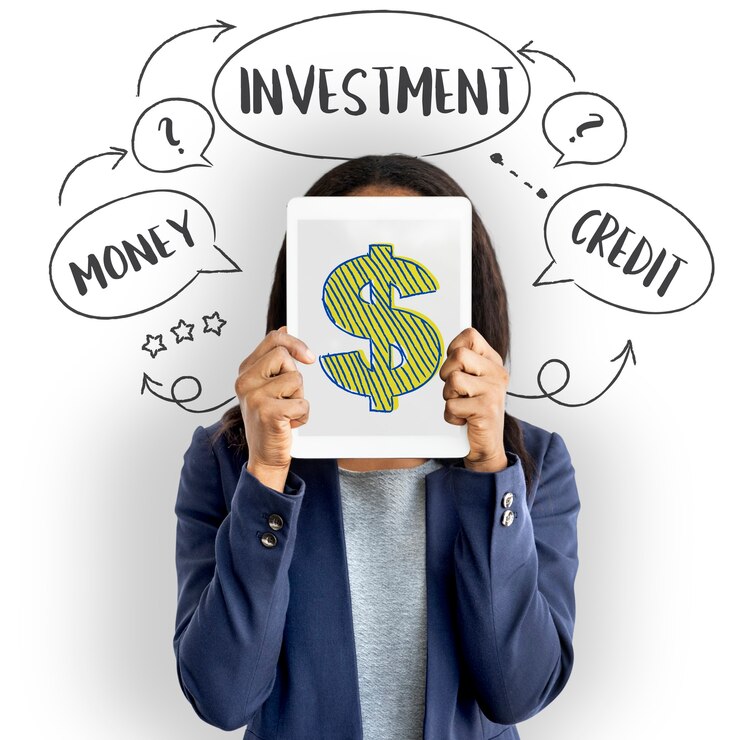
A liability is anything that takes money out of your pocket. A lot of people, like you said, think about buying a home. That’s exactly what you said, the American Dream of having a home. A home is a liability. Unless you are going to rent it out for Airbnb or you’re going to do house hacking and maybe buy a duplex and then rent one unit out and generate some income. Otherwise, a home is a liability. It is an expense. A lot of people think about cars as an asset. It is a liability. You’re paying a car payment to use it. A car is something that is never going to go up in value.
It only depreciates.
It only depreciates unless you go into the whole new world of buying an old car. That’s a whole new world investment. Overall, most consumer items are depreciating. They are not assets. They are a liability. It’s really important for you and everyone to take a look at their whole financial situation. Are they spending money or actively intentionally spending money, putting money into things that are assets that can help grow their net worth that can help generate the cashflow for them so that they could actually use that to now pay for the expense?
One of the key concepts from the book of what the wealthy do is they buy an asset, use cashflow to pay for that expense, and then at the point when the cashflow equals expense, they reach financial independence. When the cashflow exceeds their expense, they reach financial freedom. It is one of those concepts that’s hard to execute but very easy to grasp. What you brought up is everyone is worried about debt, “I don’t want to be in debt.” The point is not thinking about debt. I want people to think about leverage. If you exchange the word debt with the word leverage, that’s going to change your concept.
The important thing is your debt is being used to buy an asset that is giving you cashflow. 1) What is the debt being used for? 2) Debt is actually what helps a lot of people to leverage, which is why I love real estate because that’s not something you can do in stock. In stock, you have $100 to invest. You get the power of $100. In real estate, you have $100. You can leverage that $100, borrow debt, and now you can amplify your power of $100 because of this power of leverage that we have in real estate or buying businesses. Those are all cashflowing generating assets that are helpful to add into your asset column that helps offset your liability.
It’s all about income flow. You as a company or a small business can go out and get a small business loan to help you pay for the first year or so salaries for new people you want to bring into your business with the hopes that those people and the work that they do is going to bring in more income for your business. That is going to pay for your payment on the loan and make some profit in the business that you wouldn’t have if you hadn’t leveraged that debt that you brought in.
What people don’t actually know about, which is why I founded One River Capital, was the idea that I talked about passive income by investing in real estate. You mentioned that the money is coming in, but it’s not entirely passive. I still have to do a little bit of work. The nice thing about syndication and passive real estate investing is that when I talk to people, I’m like, “I quit my W-2. I reached financial freedom,” and this and that. A lot of people want that, but what often stops them are two things, the lack of time, “I’m so busy. I have my family. I have so and so. I can’t do this,” or the lack of knowledge.
It’s a lot to learn in the whole real estate world. This is when passive investing comes in, which is why I founded One River Capital because they can actually leverage it. This time, it’s not just leverage your money, but you will be able to leverage other people’s experience, other people’s time, and be able to invest in something entirely passively. No need to deal with tenants’ toilet trash. No need to do with the time, but still be able to own the asset and you can create generational wealth. I should be able to leverage the group investing model in order to grow their wealth, which is that’s what I’m spending my time on now.
When I started investing, as an immigrant, it felt like there were no people out there investing. A lot of people are working under the W-2. As an immigrant, a lot of the knowledge of investing and a lot of what is possible in the US are not quite well learned and well shared, so people don’t know that this is possible. This is what a lot of wealthy people do. They invest in something like a multifamily or a large apartment building within a group.
They don’t have to do anything and don’t have to actively manage it. They will be able to generate the cashflow, the appreciation, and the tax benefits without spending more time on it. This is what I get to spend my day on, helping educate investors and showing them this is possible, and then a lot of problem-solving when it comes to the real estate world. Also, salsa dancing is on the other side of things too.
It’s somewhat akin to being a silent partner in a business. As a silent partner in the business, you’re leveraging the expertise of your other partners in the business and all you’re bringing is some money to the table to be invested and used in an appropriate way in a business and then you get a return out of the success of the business.
Isn’t that so cool?
You’re not really spending a lot of time with it, maybe a partner meeting once a month or something of that nature where you might have a little bit of say in how the business is running. It’s something akin to that. You don’t have to spend a lot of time with it. If you can bring a little bit of cash upfront to the beginning, you can start small and then grow it as your investments are returned over. What else are they spending a lot of money on? I don’t know that people truly understand there’s that opportunity out in the world. Don’t get scared of this word called debt.
That’s the funny thing.
I like what you say. You used the word leverage, not debt.
It’s so cool that in this world, we get to leverage money, time, and experience. We get to do all of that and leverage this group’s collective genius in order to execute something. The funny thing is people are already used to this in the stock world. If you invest in stock at all, that essentially is what you’re doing. You’re lending this company money. They will then take it and run their business. The difference here is you don’t actually own. You invest in Apple stock but you don’t own Apple. You just own a paper commodity. You don’t own the company itself, but when you technically invest in an apartment building or business, you become an owner. It’s a very similar-ish model except for the fact that you get to own it.
It's so cool that in this world we get to leverage, money, time, and experience. Share on XIt’s like a mutual fund. You’re putting money into a mutual fund leveraging the expertise of the people who run the mutual fund to take your money and invest it in a proper way that a return is going to happen over a period of time. There’s no difference. You’re leveraging the expertise of the fund manager or managers who are putting on the fund. It’s no different. You just do it with real estate as the asset as opposed to ownership in a company, which is what a stock is.
It’s a different type of asset. What I was trying to educate people is diversification. This is why it’s wonderful in this age that we get access to a lot of these options around there so that you can get to diversify your portfolio. You don’t have to choose, “I’m just going to buy stock.” You can choose to buy stock and invest in a business passively and diversify your portfolio to have cashflow, appreciation, tax benefit, and leverage the economy or this group of collective genius. We’re in a great place where people get these options out there.
Your messaging is important for folks. There are two questions left. I mentioned the first one a few minutes ago, the word fear. With your story of coming as a young adult to a new country going to different schools, working through your dreams, working in the medical field, getting a patent, and changing to an entrepreneur, how has the word, idea, or emotion fear play a role in your life? Has it been an evolution? Has it been, “I’ve never felt fear at all in my life. I’m a go charger.” Has it been, “It’s been sitting there and I’ve had to deal with it.”
I love that you brought it up. I don’t think I’ve shared this too widely per se. My words for 2024 are fun and fearless. I don’t think you can have one without the other. Fear directs everyone’s actions on a daily basis. We have these two stick or carrots. It’s either you get a reward or you get fear. It’s always these concepts or leverage and balance that we’re trying to figure out. I listened to something interesting about fear where there are two types of years. Sometimes it’s hard to distinguish which one is which. There are fears that are keeping you alive. Don’t cross the street when the car is going through. There are fears that are keeping you alive and there are fears that are holding you back. Sometimes what’s holding you back can feel like it’s saving your life because your body gets confused about what is what.
I have fears a lot all the time, every day, and every single time. I’m like, “Fearless is going to be my word.” I don’t try to just ignore it and override it. I do try to pay attention to it. Let’s say when I wake up and like, “These are all things that I’m anxious or fearful about,” I write it down. What it does is that it brings this fear from this blob of, “I don’t know what is happening, but it’s a feeling there.” It helps this blob of the unknown to become these bullet points on paper. It doesn’t feel like this giant huge thing that I can never get over but 1 bullet point, 2 bullet points, or 3 bullet points. Now I can get to examine these bullet points, “I worry that the interest rate is going to keep increasing.”
I get to examine that fact. That actually is not a fact. That is not true, so I get to examine, “If it is increasing, what is it that I can do? If it’s not increasing, what is it I can do?” I should get to examine this form of unknown into things that I can troubleshoot through, solve, and put things in place to help it. That’s how I go through the things. Sometimes what I also do a lot is have the community help me. I have partners. I have mentors that help me talk through things. These people are where I want to be. They can tell me like, “If this happened, you can do this. If this happened, you can do that,” or you can tell them, “You’re just in analysis paralysis. Just go ahead and take action.”
Those are ways to minimize the risk.
Yes, write things down.
You think the risk is, “It’s big,” but the reality is it’s only about this.
Definitely write things down. Talk to people. Things tend to be more manageable when you have a conversation.
Giang, I can’t thank you enough for coming on and spending time with me and our audience on this show. We talked about golden nuggets, those things that people could take away from the conversation and integrate into their lives, business, leadership, or whatever it may be that gets them to a closer spot of what they call success in their own lives. I can’t thank you enough for telling your life story and hopefully being an inspiration to some folks out there. We have one last question. This is the question we ask every single guest because we like to see where the thread is between all the answers. What do the words generate your value mean to you?
What comes up for me when I hear generate your value is choice. With the word generate, you really get to choose your own adventure. You get to choose what that looks like. What comes up for me is that intention and that choice. With value, we’re all here for a purpose. We are all here for a reason. What often fires us up whether we realize it or not is how we’re helping the world and helping others. That’s where the word value comes in. You get to choose how you show up in the world and you get to choose how you contribute to the world. That’s what comes up for me when I hear that. I love that. That’s what fires us up every day.
That’s why I named my company after those words and why I’m curious about what those words mean to everybody. I ask that even to the people who aren’t guests on the show, “What do those words mean to you?” This is different for everybody. If somebody wanted to reach out to you and learn more about your business, passive investing, or connect with you because they used to work in a medical field in Philadelphia or whatever it may be, what’s the best way people could reach out to you?
You can find me on Instagram. My Instagram is called @ThatSalsaInvestor. I’m pretty active on Instagram and you can find out more about my company One River Capital at OneRiverCapital.com. You can reach out to me at Giang@OneRiverCapital.com and I’m always happy to share any inspiration I got here because other people inspire me to see what’s possible. I’m always happy to chat and share what’s possible and what I’m doing and always happy to connect. Thank you so much for having me. It’s been such a great conversation. I love getting to chat with all the entrepreneurs and share the journey and what we’ve been on.
Let’s twice spend the time, energy, and money to do this show for people to be able to connect, understand, and generate value in the world. That being said, we’re here every single week. Be sure to go out there and subscribe so you don’t miss an episode or another great guest like Giang sharing her story and trying to make an impact and a ripple effect in the world, just like we all are. With that being said, have a great day. Have a great week. We’ll see you next episode. Take care.
Important Links
- One River Capital
- Rich Dad Poor Dad
- Cashflow Quadrant
- @ThatSalsaInvestor – Instagram
- Giang@OneRiverCapital.com
About Giang Nguyen
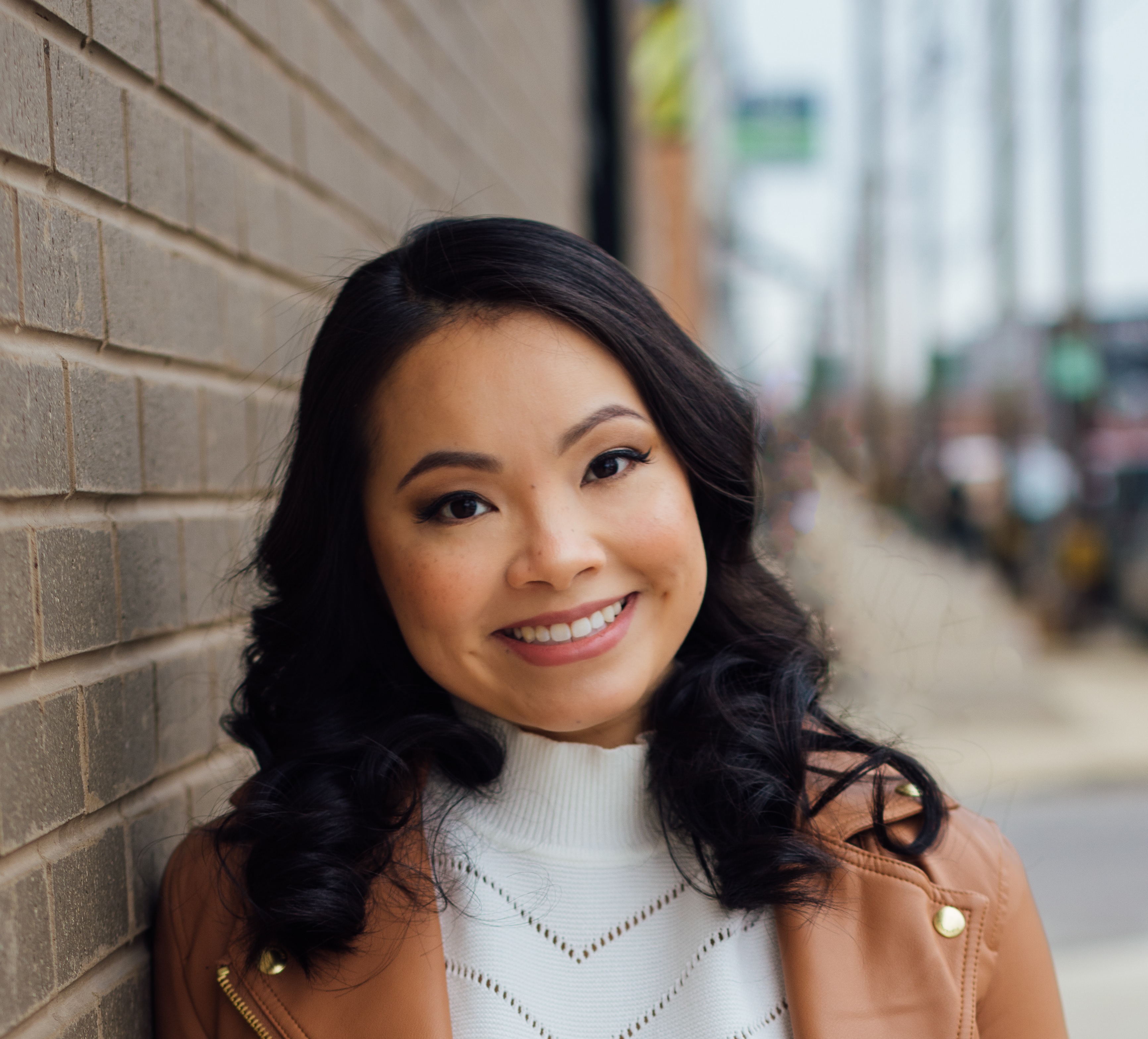 Giang Nguyen is a seasoned multifamily real estate investor and syndicator, specializing in value-add multifamily rentals. With over 10 years of experience as a scientist, Giang excels in analyzing complex data, employing financial models, and creative problem-solving. She applies a data-driven approach to help her teams’ identify key markets, underwrite multifamily syndication opportunities, and create business plans that maximize property value. Giang achieved financial freedom through real estate investing at the age of 31, paving the way for her to pursue her passions.
Giang Nguyen is a seasoned multifamily real estate investor and syndicator, specializing in value-add multifamily rentals. With over 10 years of experience as a scientist, Giang excels in analyzing complex data, employing financial models, and creative problem-solving. She applies a data-driven approach to help her teams’ identify key markets, underwrite multifamily syndication opportunities, and create business plans that maximize property value. Giang achieved financial freedom through real estate investing at the age of 31, paving the way for her to pursue her passions.
